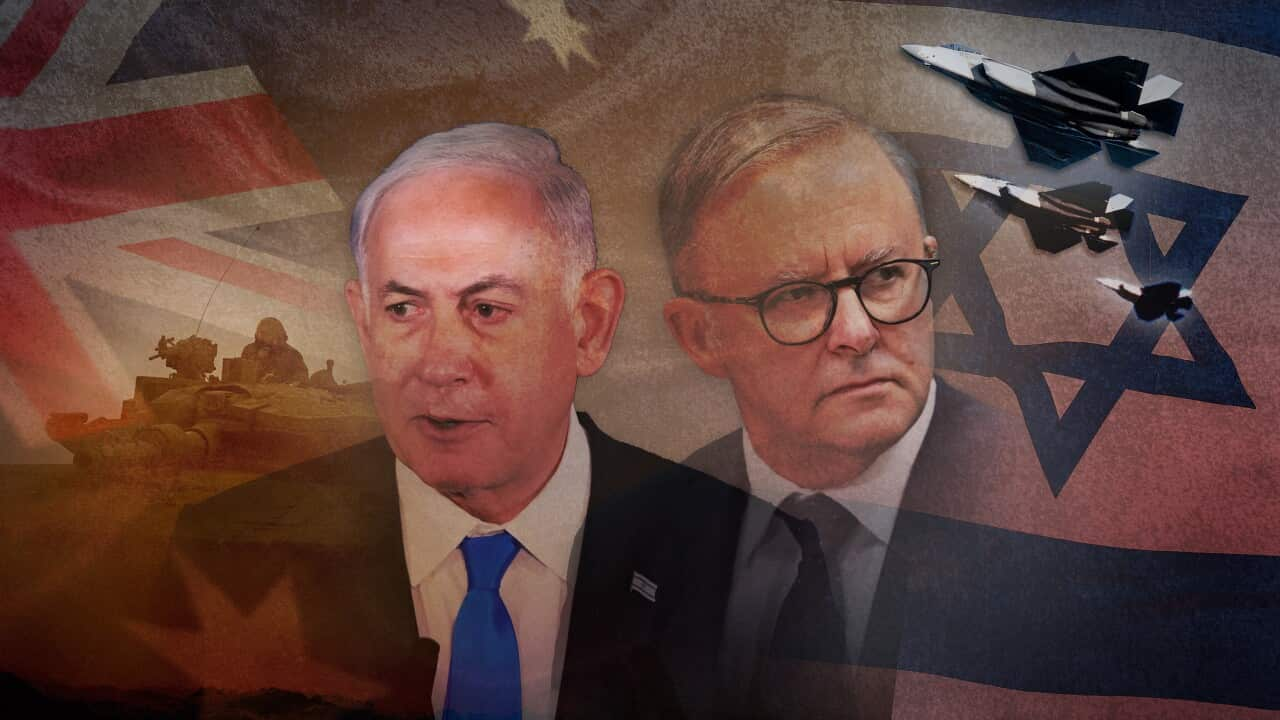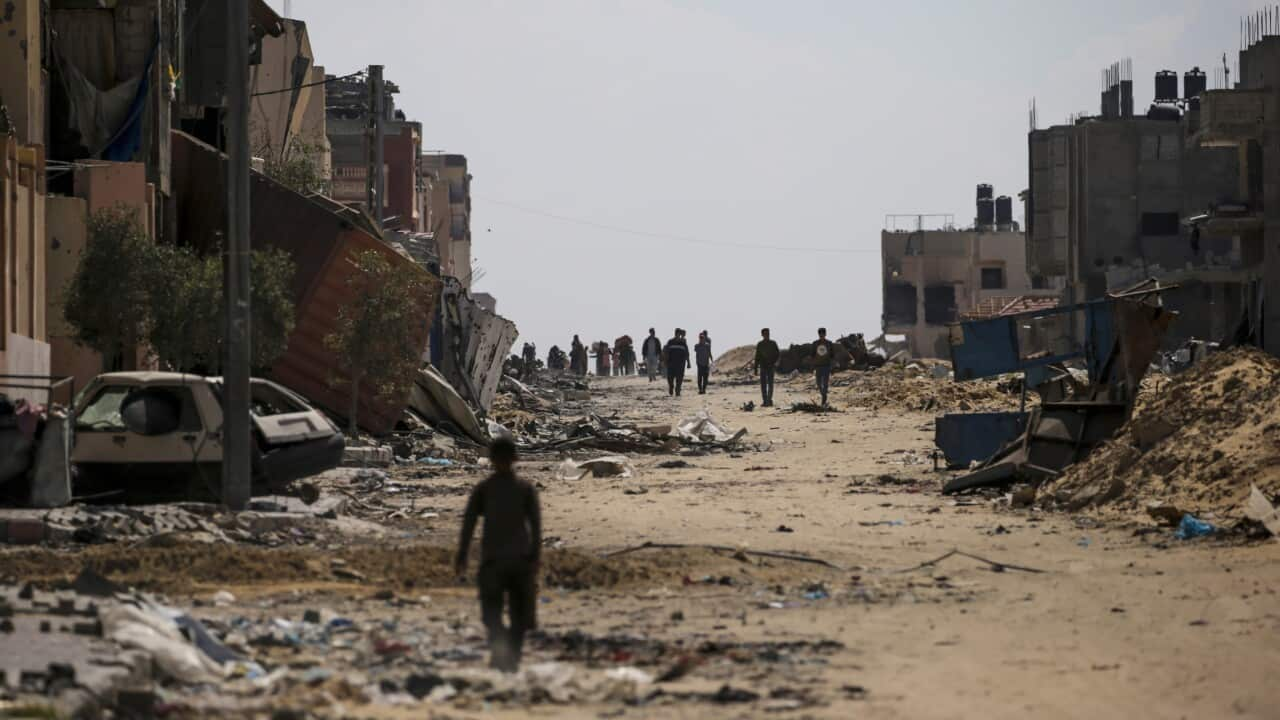Key Points
- An Australian UNICEF employee has told of the moment her vehicle was hit by gunfire while waiting at a checkpoint in Gaza.
- Tess Ingram, spokesperson for UNICEF, said the gunfire came from the direction of the checkpoint.
- Ingram said the incident shows how unsafe it is for humanitarian aid workers in the Gaza Strip.
A member of a UNICEF team whose vehicle was hit by live ammunition while waiting at a checkpoint in Gaza has recounted details of the incident, saying the gunfire came from the direction of the checkpoint and towards civilians.
Tess Ingram, spokesperson for UNICEF, was in the three-car convoy that was part of a coordinated mission between UNICEF and UNWRA to deliver fuel, nutrition and medical supplies to affected areas in the north of the Gaza Strip, including Kamal Adwan Hospital.
It is not immediately clear who fired the shots.
Ingram told SBS News it will take time for her to process the event but she is focused on going back to Gaza and completing the mission.
SBS has seen footage of a car with bullet holes Ingram says she was a passenger in.

Vision supplied by UNICEF shows a bullet hole in a car. Source: Supplied / UNICEF
"Australia is deeply concerned by these reports, and is urgently seeking more information," they said in a statement to SBS News.
"Civilians, journalists and aid workers must be protected. Australia has consistently called for this.
"Wartime does not remove the responsibility for observing international law."
Ingram, an Australian who used to work as a newspaper reporter in Perth, said the vehicle was waiting at a designated holding point, just before a checkpoint, when gunfire erupted.
"The gunfire came from the direction of the checkpoint, towards civilians who then ran away from the checkpoint, and the gunfire hit us," she recalled.
"We were really lucky. We had some colleagues outside of the car checking a mechanical problem with the nutrition truck when the [gun]fire broke out, and they had to run back to our armoured vehicle."
"Fortunately they were safe, but three bullets hit the car that I was in, right on my passenger door, the window and also the bonnet of the car."
UNICEF said in a statement it had raised the incident with the relevant Israeli authorities.
"Sadly, humanitarians continue to face risks in delivering lifesaving aid. Unless humanitarian aid workers are protected, in accordance with [international humanitarian law], humanitarian aid cannot reach people in need," it said.
Ingram told SBS News the crew was planning to go back this weekend with the same supplies to deliver them to starving Gazans.
“It’s going to take me time to process this, for the moment I’m really focused on making sure that we can advocate for the problems that caused this incident to be resolved and to make sure that the mission that we weren’t able to complete is finalised.
"This does rattle you but we know this is a dangerous place to operate but we also know that we can’t stop, that it’s more dangerous for the children."
Ingram said the incident shows how unsafe it is for humanitarian aid workers, whose missions to provide life-saving aid to civilians in Gaza are made "impossible" by violence.
"Safety is not guaranteed, even when we take all of the required steps, as we saw with the tragic ," Ingram said, referring to an incident on 5 April when the Israeli military fired three missiles on a humanitarian convoy run by the leading international charity World Central Kitchen, killing seven aid workers.
"This is just another example of an incident like that," she said, adding that safety guarantees given by Israel are "hollow".
The Israel Defence Forces made public the findings from its investigation into the strike that killed seven aid workers, including .
It found serious errors and breaches of procedures were behind the attack.
Foreign Minister Penny Wong said the federal government had written to Israel's government after receiving a verbal briefing, and raised concerns that Israel had not taken "appropriate action" in reprimanding those responsible for the attack.
"Israel's initial responses suggest that the gravity of the death of seven humanitarian workers is yet to be appreciated by the Israeli government," Wong said.












